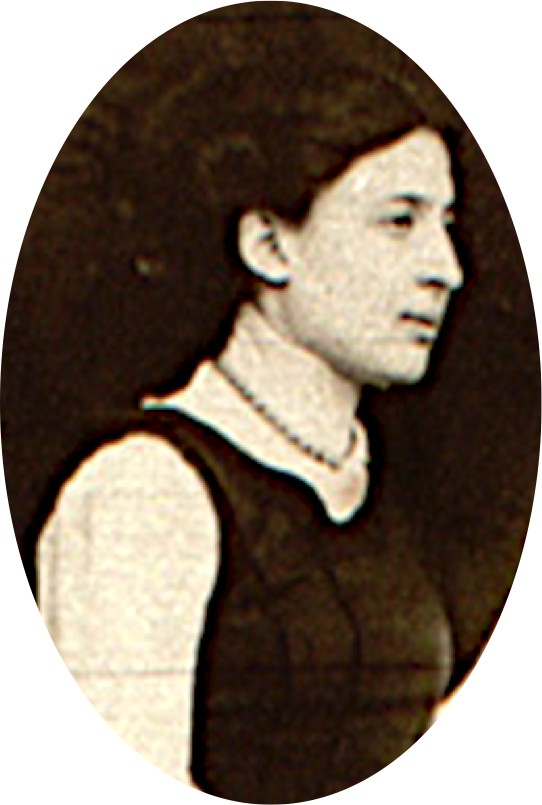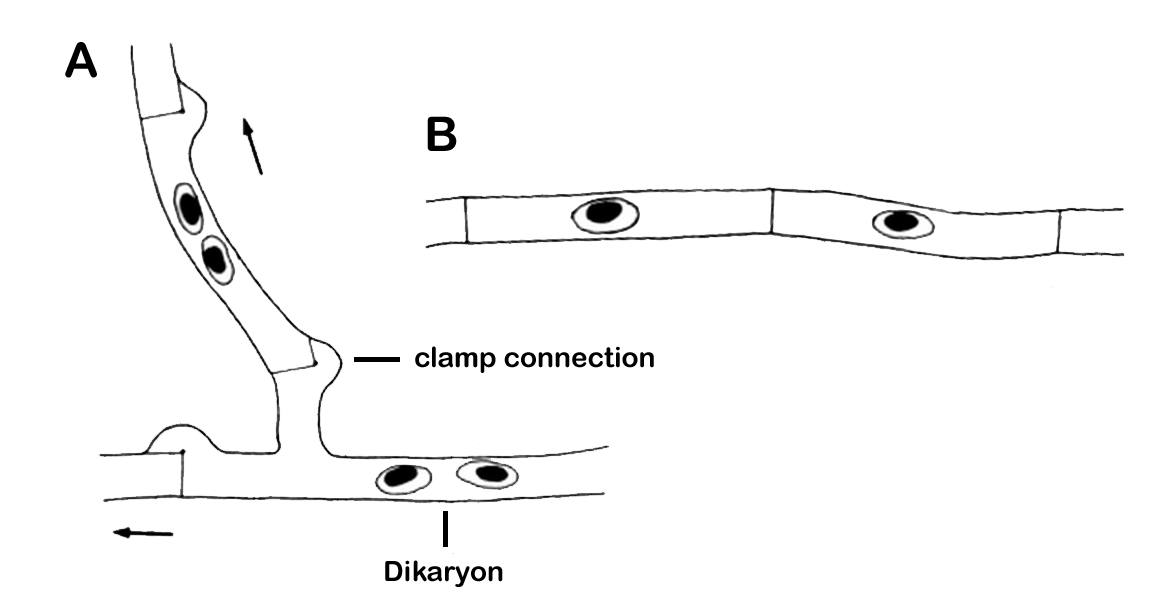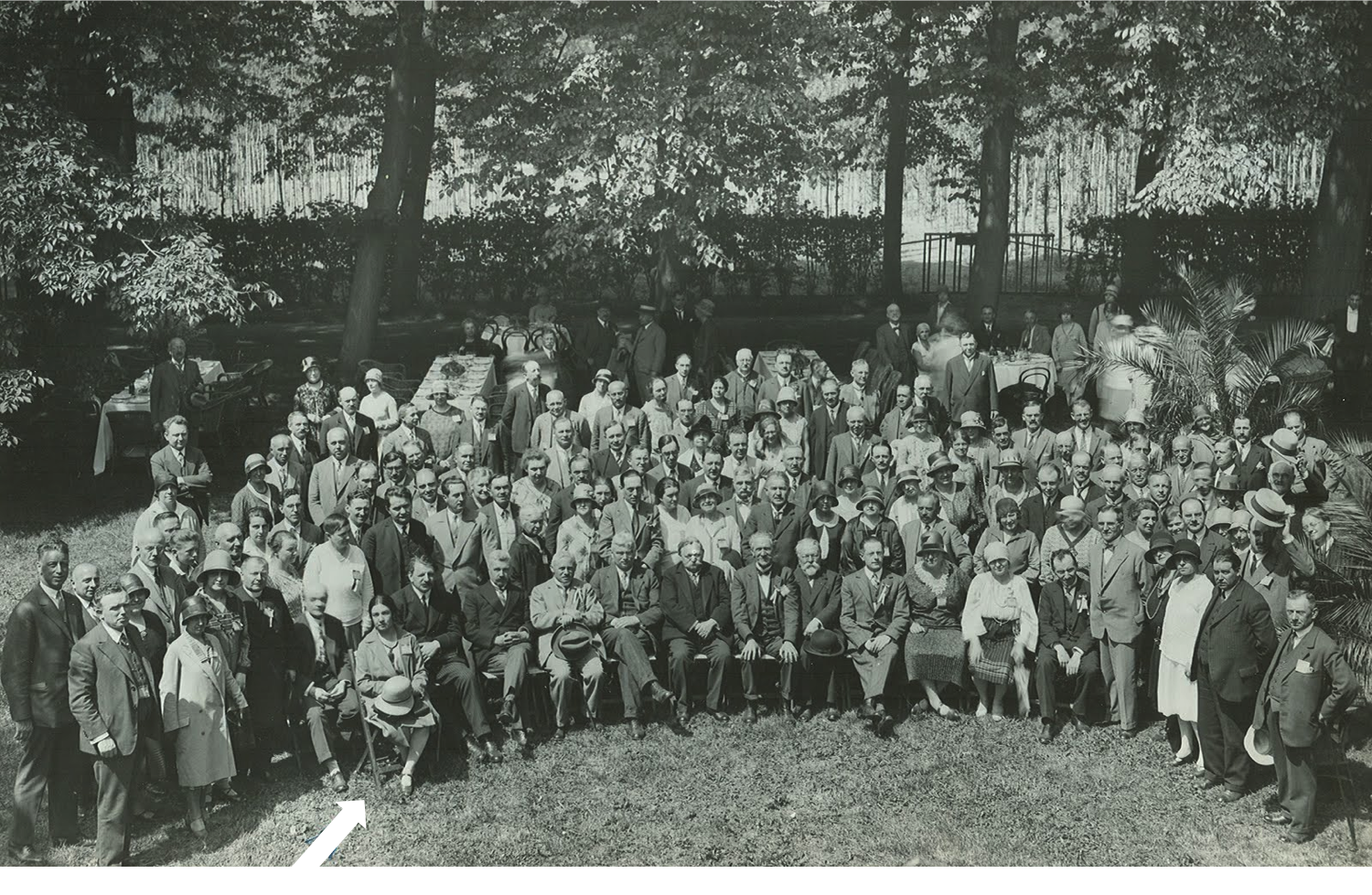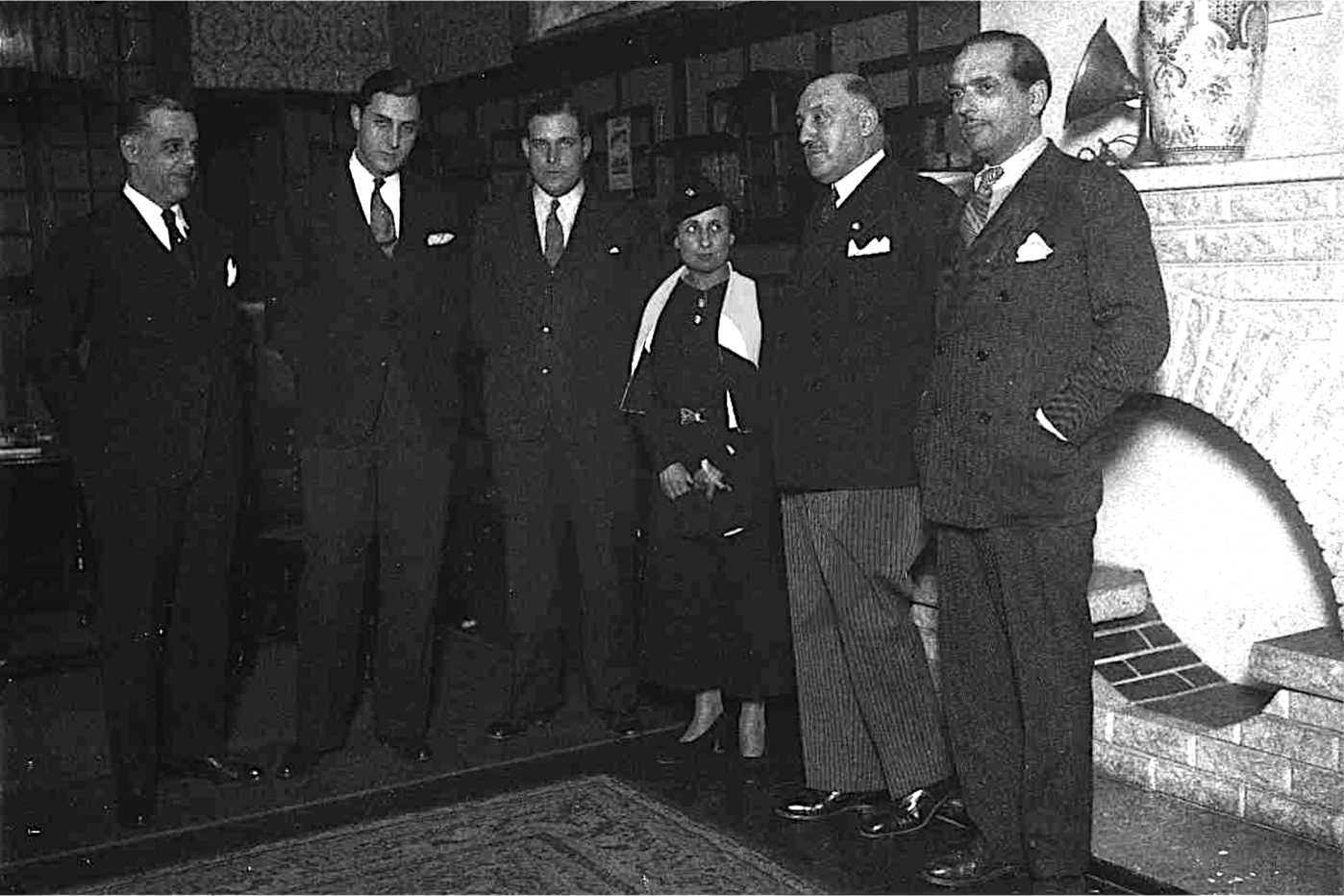
Mathilde Bensaúde was born on the 23rd of January, 1890. She obtained her PhD in 1918, with a rather original thesis concerning the sexuality of the basidiomycetous (Nemours, 1918), obtained while working for the Botanical Laboratory of the École Normale Supérieure, in Paris, under the direction of Professor Matruchot. It was there that she established and demonstrated the notion of heterothallism in the autobasidiomycetous, the most important concept for explaining the mechanisms of sexuality of the basidiomycetous. Mathilde Bensaúde studied de mating reaction of single-spore cultures of Coprinus fimetarius and showed that the mycelium arising from single spores was made up of hiphae with simple septa. She also observed that the hiphae of the fruiting bodies and mycelium bore clamp connections.

Dikaryotic hipha showing clamp connections (A) and homokaryotic hipha with simple septa (B). Adapted from Mushrooms.
A Portuguese pioneer in biological investigation, Bensaúde was the only woman among the founders of the Portuguese Society of Biology, in 1920.
From 1919 to 1923, she spent most of her time living in the United States of America, having specialized there in phytopathology. In 1928, she worked as a researcher at the Rocha Cabral Institute. In 1940, at the age of 50, she left her job at the Ministry of Agriculture, where she had been working since 1931, organizing and directing the phytosanitary structure.
She died on the 22nd of November of 1969.
*****
Mathilde Bensaúde nasceu a 23 de janeiro de 1890. Doutorou-se em 1918 com uma tese muito original sobre a sexualidade dos Basidiomicetos. Filha de Alfredo Bensaúde (1856-1941), o fundador e primeiro Director do Instituto Superior Técnico de Lisboa. Concluiu os estudos secundários na Suíça em 1909. Iniciou os estudos universitários em Lausanne, mas interrompeu-os para voltar a Portugal, só os retomando em 1913, quando se matriculou na Universidade de Paris. Estudou ciências naturais, licenciando-se em 1916.
Foto da familia Bensaúde.
Trabalhou para o seu doutoramento no Laboratório de Botânica da École Normale Supérieure, sob a direcção do Prof. Matruchot. A investigação de doutoramento resultou na tese "Recherches sur le cycle évolutif et la sexualité chez les basidiomycètes" (Nemours, 1918). Aí estabeleceu e demonstrou a noção de heterotalismo nos autobasidiomicetos, a ideia mais importante para a explicação do mecanismo da sexualidade dos basidiomicetos. Este trabalho, que decorreu durante a I Guerra Mundial, foi desenvolvido independentemente e em simultâneo pelo botânico alemão Hans Kniep (1881-1930), embora este só tenha publicado as suas conclusões sobre o heterotalismo dois anos depois de Bensaúde.
Portuguesa pioneira da investigação biológica, em 1920, foi a única mulher entre os fundadores da Sociedade Portuguesa de Biologia. Passou a maior parte do período entre 1919 e 1923 nos Estados Unidos da América, para onde se foi especializar em Fitopatologia. Estes trabalhos foram interrompidos pela sua ida para os Açores, onde se estabeleceu de 1923 a 1926. Em 1928, entrou como investigadora para o Instituto Rocha Cabral, em Lisboa.

Participação num Congresso em Haia (1929).
Em 1931 foi convidada para organizar e dirigir a estrutura fitossanitária do Ministério da Agricultura, onde desenvolveu uma actividade muito intensa.

A Doutora Mathilde Bensaúde com os dirigentes da Associação Comercial (1935).
Os ministros do Comércio e da Agricultura com a Doutora Mathilde Bensaúde durante a visita inaugural da Exposição Demonstrativa da Cultura da Batata, na Associação Central de Agricultura (1938).
Em 1940, com apenas 50 anos de idade, solicitou a rescisão do seu contrato no Ministério e retirou-se. Morreu a 22 de Novembro de 1969.
References:
- Mathilde Bensaúde: wikipédia (PT), wikipedia (EN).
- QUINTANILHA, Alfredo, Mathilde Bensaúde. 23-1-1890-22-11-1969, Boletim da Sociedade Portuguesa de Ciências Naturais, 1972, 13, 5-19.
- MOTA, M.M., "Mathilde Bensaúde (1890-1969). Portugal's pioneer plant pathologist" in Pioneering women in plant pathology, Jean Beagle Ristaino (Ed.), APS press, 2008, 169-177.
- Obituary by Edith Seymor Jones.
- Mathilde Bensaúde 1890-1969. Phytopathology,1972, 62 (11), 1229.
- ASSOR, Miriam, Judeus ilustres de Portugal: 14 homens e mulheres que marcaram a História do nosso país, A esfera dos livros (Ed.), 2014.
- MILES, Philip G., CHANG, Shu-Ting, Mushrooms: Cultivation, nutritional value, medicinal effect, and environmental impact, CRC Press, 2004, pp. 105-105